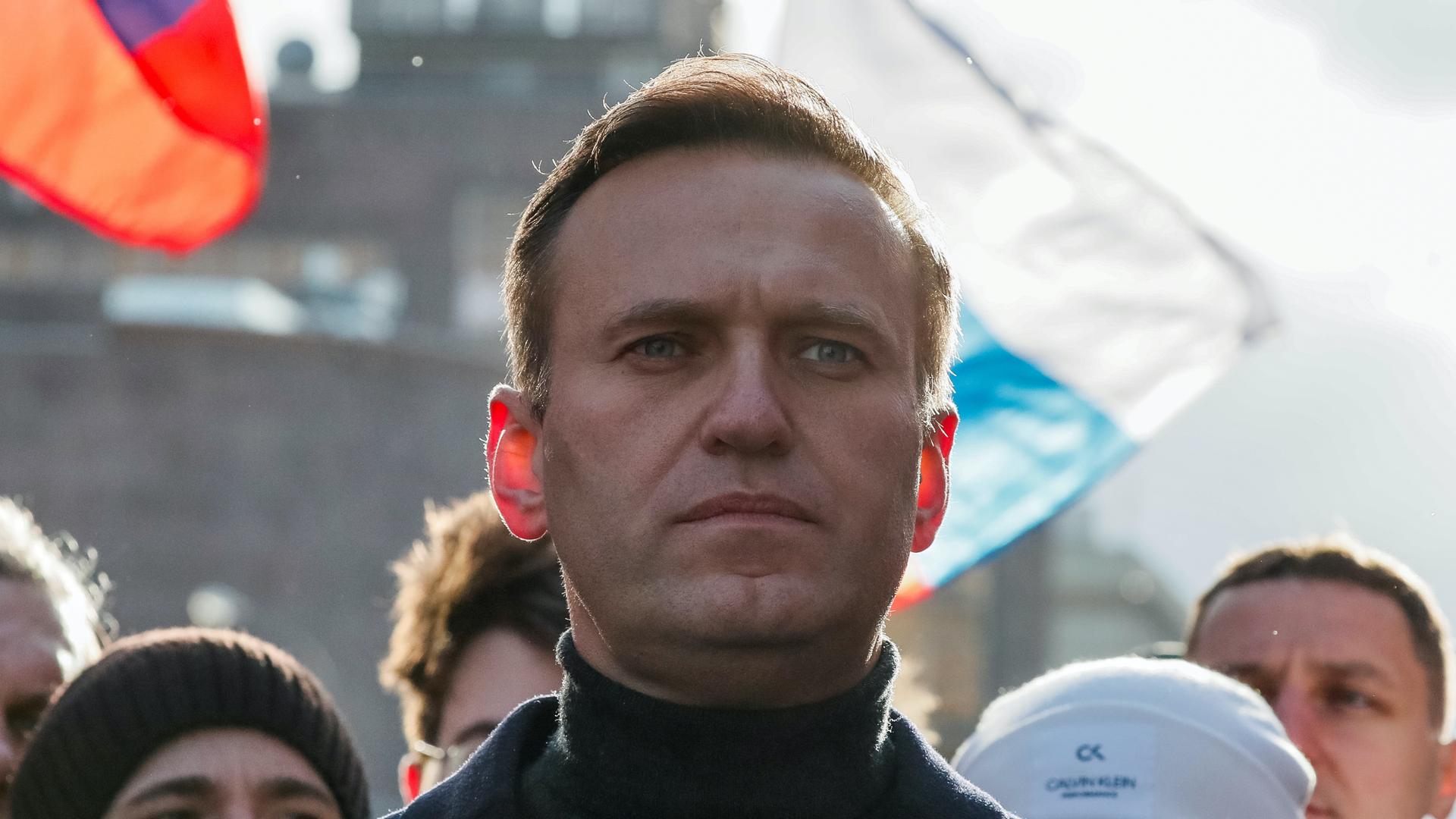Nalvany poisoning shows it’s ‘much riskier’ now to stand up to the Kremlin, says investigative reporter
On Instagram on Tuesday, Russian politician Alexei Navalny wrote: “I could breathe the whole day on my own.” He posted that message from a hospital in Germany, where he is now out of a coma and off a respirator after suffering from a poisoning last month.
Related: Germany: Russian dissident Navalny poisoned with nerve agent
Apparently, Navalny still has a sense of humor. “Breathing,” he said, “is a surprising process that is underappreciated by many. I highly recommend.”
The opposition leader was poisoned with a Soviet nerve agent last month and is finally recovering. Now, Navalny says he plans to return to Russia.
Russian investigative reporter Andrei Soldatov joins The World’s host Marco Werman to discuss what Navalny’s poisoning ordeal signals to Russians and the international community.
Related: The Kremlin forcibly conscripted an opposition ally. It’s illegal, investigator says.
Marco Werman: Is there any doubt in your mind as to whether this poisoning was ordered from high up in the Kremlin?
Andrei Soldatov: Well, I’m not a biochemical expert but it seems to be very unlikely that somebody in Russia would try to take such a big risk — [to take] out a very popular opposition politician — without first securing some approval from the very top.
You’ve told The Washington Post that in Soviet times, the KGB refined their poisoning strategy to perfection in that, “poison is unique and that its victim does not suffer alone. Their relatives and friends share the horrific experience of a loved one suffering.” That was your quote. In today’s terms, is this still a strategy? What does the Kremlin have to gain from that?
It became even more effective because these days, we have social media. So, back in the Soviet times, you would have a dissident family affected and his relatives affected by the impact of this [horrible] experience of seeing someone close to you suffering from poison. But these days, we all have these pictures all over the internet, and lots of people who just follow the news about Navalny or think they might have some critical ideas about Kremlin — many of them now feel very uneasy.
But we’ve seen a series of denials of any involvement in this case from various Russian officials over the last few weeks. Denials from Press Secretary Dmitry Peskov, Foreign Minister Sergey Lavrov, now the head of Russian foreign intelligence, Sergey Naryshkin, implied that Germany was somehow involved in the poisoning. What do you make of all of these denials?
I think it reflects that there’s no strategy in place [for] how to respond to this growing and international pressure. And nobody expected from the Kremlin that such a big scandal would erupt. To me, [what] is the most interesting, I think, is why the head of the foreign intelligence agency decided to speak up and to comment on this issue. It’s very, very unusual for our country to have a head of intelligence agency [talking] about anything that sensitive. It looks like everybody is just rushing to the media trying to find a way … to get away from this very … difficult situation for the Kremlin.
Related: Kremlin denies Navalny was poisoned
Is it possible that these boilerplate denials are just standard operating procedure and maybe the Kremlin wants the public in Russia to think the Kremlin did it?
That’s the trick, actually. If you look at the series of poisonings we’ve had in our history, most of these poisonings were actually carried out against Russian people. When you have a poisoning like that, you can almost see that there are two messages: You have some message to the international audience, but first of all, it’s a message for the Russian people. We all understand that. So, despite all these denials, the message is very clear that one needs to be really, really careful …that making a stand against the Kremlin, now it’s much riskier than it was five, four or even two years ago.
Alexei Navalny has said he’s got plans to return to Russia, even though it’s apparent that he was poisoned, at least with the knowledge of Russian authorities. Does it surprise you that he wants to go back?
I think it’s very brave of him to say that, and I applaud him for that because we need politicians like Navalny in our country. And I think it’s really brave that he decided to get back.
This interview has been edited and condensed for clarity.
The story you just read is accessible and free to all because thousands of listeners and readers contribute to our nonprofit newsroom. We go deep to bring you the human-centered international reporting that you know you can trust. To do this work and to do it well, we rely on the support of our listeners. If you appreciated our coverage this year, if there was a story that made you pause or a song that moved you, would you consider making a gift to sustain our work through 2024 and beyond?
